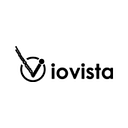Mastering Ecommerce PPC Management: Strategies for Success
Ecommerce PPC management is crucial for businesses looking to drive sales and revenue through paid search campaigns. With the rise of online shopping, more and more consumers are searching for products through search engines like Google. This means it’s essential for ecommerce companies to have an effective PPC strategy in place. In this blog post, we’ll explore some of the basic techniques and best practices for mastering ecommerce PPC management. Whether you’re just starting with paid search or looking to take your PPC efforts to the next level, following these tips can help set your campaigns up for success.
The Importance of Keyword Research
Thorough keyword research is the foundation of any successful PPC campaign, and this is especially true in e-commerce. You need to identify high-volume, high-intent keywords driving transactions in your niche. Look at historical search data to see which product and category terms are popular. You also want to research long-tail variations around your core terms. Long-tail keywords tend to have higher conversion rates since they indicate a more specific user intent.
Once you’ve compiled your target keyword list, you need to organize those terms appropriately. The keywords should be grouped into tight, highly relevant ad groups around specific products, categories, or services. This allows you to create tailored ads and landing pages that directly align with what the user is searching for. The more dialed-in your ad groups are, the better your quality scores, click-through rates, and conversion rates will be.
Optimizing for Conversions with Landing Pages
One of the biggest mistakes ecommerce PPC advertisers make is sending traffic to their generic home page or product pages. These pages are not optimized for converting paid traffic. Instead, you need to set up dedicated landing pages that align with your target keywords and ad messaging.
Your landing pages should prominently feature the product or offer mentioned in your ad. The copy on the page should also match the language used in your ad to reinforce the offer and increase conversions. You can even set up dynamic keyword insertion to pull the actual searcher query into the headline or body of your landing page.
Other best practices for landing page optimization include reducing distractions, emphasizing unique selling propositions, simplifying navigation, and prominently featuring calls-to-action. Every element should focus the visitor on completing the desired conversion goal.
Crafting Compelling Ad Copy
Writing effective PPC ads is an art and science. Your headlines and ad copy must capture attention and click-throughs, but you must also communicate how you solve your target customer’s needs.
For ecommerce PPC ads, focus on highlighting key product features and benefits in your description lines. You want to convince shoppers why your product is better than the competition’s. This may involve pointing out things like price, quality, speed of shipping, or other differentiation factors.
It would help if your ads also had compelling calls to action that push people to make a purchase. Phrases like “Buy Now” or “Free Shipping” help generate clicks and transactions. Use dynamic keyword insertion to pull the searcher’s query into your ad copy for higher relevance. Your ads should motivate users to click by clearly explaining how you can fulfill their intent.
Bidding Strategies for Success
Your bidding strategy can make or break the success of your e-commerce PPC campaigns. You need to set bids high enough to gain visibility and traffic volume, but you can’t overpay for clicks and tank your return on ad spend.
Leverage both manual and automated bidding to find the right balance. For newer campaigns, start with manual bidding so you can control costs directly. As you gather conversion data, utilize automation like Target CPA bidding. This automatically adjusts bids to hit your target return on ad spend.
Also, implement bid adjustments to optimize for conversions. You can increase bids on higher-performing devices, locations, ad schedules, placements, and more. Lower bids on segments with poor conversion rates mean you pay less for low-quality traffic.
Regularly review search terms reports to find high-converting keywords where you can bid higher. Add negative keywords to block irrelevant queries that will never convert. Ongoing bid management is required to maximize ROI.
Tracking PPC Performance
The only way to improve your e-commerce PPC results is to closely monitor and track campaign performance. It would help if you had clear visibility into metrics like impressions, clicks, cost per click, conversion rate, return on ad spend, and more.
Set up conversion tracking to attribute sales directly to your PPC ads. This allows you to calculate your true ROAS and see which keywords are profitable. Use segmentation and split testing to compare different ad copy, landing pages, and offers. Eliminate the versions that underperform.
Evaluate search terms reports to identify your top converters and low-quality queries to add as negatives. Check search impressions and share data to ensure you’re capturing the visibility you deserve. Use all these insights to optimize your ecommerce PPC campaigns for better performance over time.
Conclusion
Mastering ecommerce PPC management requires an ongoing commitment to research, testing, analysis, and optimization. However, the investment is well worth the substantial revenue and sales growth a successful PPC strategy can drive. By leveraging these best practices and keeping a relentless focus on ROI, with the expertise of IoVista Inc., you can conquer the competitive world of paid search marketing.
Name: IoVista Inc.
Address: 5220 Spring Valley Rd Suite 568, Dallas, TX, 75254
Phone No: 214–239–0143
